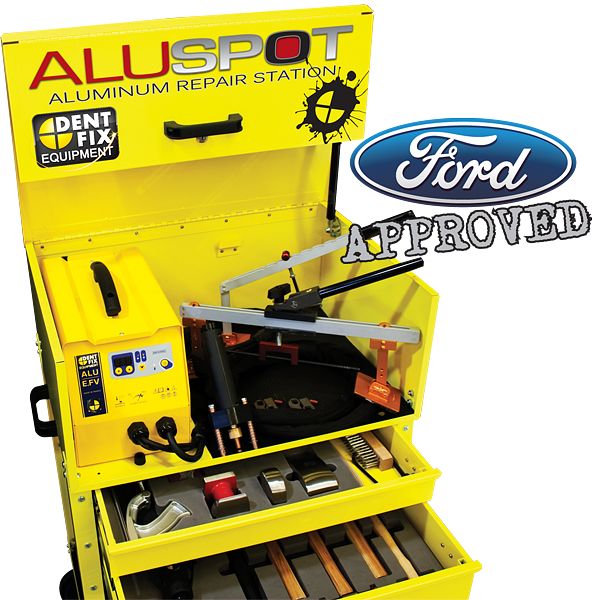Aluminum Repair

There are big differences between working with these two metals, and shops that are not qualified to make aluminum repairs can cause serious harm to the safety and value of your vehicle.
Aluminum doesn’t have metal memory like steel.
This means that when aluminum is dented or bent, it cannot be reshaped back to its undamaged state as easily as steel. A body repair technician needs better skills to reshape an aluminum panel without damaging it beyond repair, as well as aluminum-specific tools like an aluminum dent pulling station.
Aluminum reacts to heat much differently than steel.
Aluminum conducts heat much more than steel, which means that heat travels through aluminum farther and faster. This makes welding aluminum parts more difficult. Welding aluminum requires both special welders unique to aluminum repair and the the skill to weld precisely.
Since excessive heat will compromise the integrity and strength of the metal, improper aluminum welding can create vehicle safety issues if the car is involved in an accident. With the Ford F150, many parts of the aluminum structure are joined not by welds, but by special rivets and adhesives. Joining these parts requires unique tools that are not used in traditional collision repairs. Special training is also needed to make these repairs properly so that the strength and safety of the vehicle is maintained.
Aluminum and steel don’t play well together.
Unfinished aluminum and steel are actually corrosive to each other. If shavings from one metal contact a panel made of the other metal, damage is immediate. Even using a tool to repair an aluminum panel that was previously used to repair steel will cause corrosion on the aluminum panel!
Because of this, a completely separate set of tools is required in order to repair aluminum. In addition, aluminum body repair must be performed in an area that is separate from the area where steel is repaired, as even steel dust is corrosive to aluminum.
